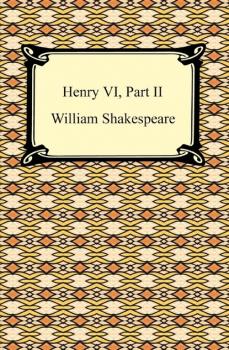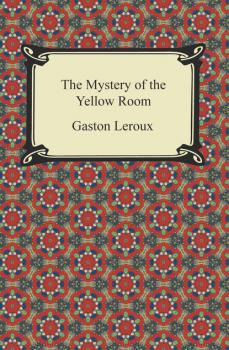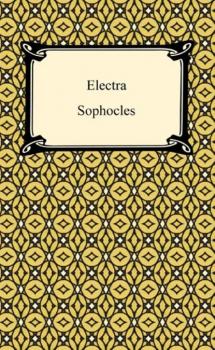MREADZ.COM - много разных книг на любой вкус
Скачивание или чтение онлайн электронных книг.Chitra
"This lyrical drama… is based on the following story from the Mahabharata. In the course of his wanderings, in fulfilment of a vow of penance, Arjuna came to Manipur. There he saw Chitr?ngad?, the beautiful daughter of Chitrav?hana, the king of the country. Smitten with her charms, he asked the king for the hand of his daughter in marriage. Chitrav?hana asked him who he was, and learning that he was Arjuna the Pandara, told him that Prabhanjana, one of his ancestors in the kingly line of Manipur, had long been childless. In order to obtain an heir, he performed severe penances. Pleased with these austerities, the god Shiva gave him this boon, that he and his successors should each have one child. It so happened that the promised child had invariably been a son. He, Chitrav?hana, was the first to have only a daughter Chitr?ngad? to perpetuate the race. He had, therefore, always treated her as a son and had made her his heir. Continuing, the king said: «The one son that will be born to her must be the perpetuator of my race. That son will be the price that I shall demand for this marriage. You can take her, if you like, on this condition.» Arjuna promised and took Chitr?ngad? to wife, and lived in her father's capital for three years. When a son was born to them, he embraced her with affection, and taking leave of her and her father, set out again on his travels."—From the Preface.
The Science of Right
From the introduction: «The Science of Right has for its object the principles of all the laws which it is possible to promulgate by external legislation. Where there is such a legislation, it becomes, in actual application to it, a system of positive right and law; and he who is versed in the knowledge of this system is called a jurist or jurisconsult (jurisconsultus). A practical jurisconsult (jurisperitus), or a professional lawyer, is one who is skilled in the knowledge of positive external laws, and who can apply them to cases that may occur in experience. Such practical knowledge of positive right, and law, may be regarded as belonging to jurisprudence (jurisprudentia) in the original sense of the term. But the theoretical knowledge of right and law in principle, as distinguished from positive laws and empirical cases, belongs to the pure science of right (jurisscientia). The science of right thus designates the philosophical and systematic knowledge of the principles of natural right. And it is from this science that the immutable principles of all positive legislation must be derived by practical jurists and lawgivers.»
Beautiful Joe
Marshall Saunders «Beautiful Joe» (1893) is a remarkable classic exploring issues of animal cruelty told from the point of view of one dog, Joe. This work was an instant success upon its release in Canada, becoming the first book to sell over a million copies in that country. Written as a kind of dog's autobiography, the work was innovative in its narrative technique. Often compared to Anna Sewell's «Black Beauty», the novel tracks the true story of a terrier in Maine named Joe. As Joe tells his story, the reader quickly meets his cruel owner Jenkins. Jenkins mistreatment grows more intense over time. The reader develops a deep sympathy for Joe and his canine counterparts on account of its narrative point of view. Joe's journey through abuse towards being rescued is a harrowing account not to be missed by the animal lover.
The Age of Chivalry, or Legends of King Arthur
Thomas Bulfinch's «The Age of Chivalry, or Legends of King Arthur» is a classic collection of the medieval legends of King Arthur. Contained in this volume are the following tales: The Mythical History of England, Arthur, Caradoc Briefbras, Sir Gawain, Launcelot of the Lake, The Story of Launcelot-The Adventure of the Cart, The Story of Launcelot-The Lady of Shalott, The Story of Launcelot-Queen Guenever's Peril, The Story of Tristram and Isoude, Tristram and Isoude, The Story of Tristram and Lyonesse, End of the story of Sir Tristram of Lyonesse, The Story of Perceval, The Quest of the Sangreal, The End of the Quest, Sir Agrivain's Treason, Morte d'Arthur, The Britons, The Lady of the Fountain, Geraint, the Son of Erbin, Pwyll, Prince of Dyved, Branwen, the Daughter of Llyr, Manawyddan, Kilwich and Olwen, Peredur, the Son of Evrawc, Taliesin, King Richard and the Third Crusade, Robin Hood of Sherwood Forest, Robin Hood and His Adventures, Chevy Chase, The Battle of Otterbourne, and Edward the Black Prince.
Selected Stories of Anton Chekhov
Anton Chekhov was a master of the short story. The son of a former serf in southern Russia, he attended Moscow University to study medicine, writing short stories for periodicals in order to support his family. What began as a necessity became a legitimate career in 1886 when he was asked to write in St. Petersburg for the Novoye Vremya (New Times), owned by millionaire magnate Alexey Suvorin. Chekhov began paying more attention to his writing, revising and developing his own principles and conceptions of truth, for a time coming under the influence of Leo Tolstoy. As a result of his widespread popularity, Chekhov amassed a vast collection of short stories displaying an early use of stream-of-consciousness writing, as well as his powerful ideas concerning the individual, the tedium of life, and the beauty nature and humanity. Twenty-eight stories are collected here in the «Selected Stories of Anton Chekhov» including many of the author's greatest shorter works.
Henry VI, Part II
The second play in Shakespeare's 'First Tetralogy,' this work continues the fictionalized account of King Henry VI's reign. It commences with the marriage of Henry VI with the French noblewoman Margaret of Anjou, whose influence in court is challenged by Duke Humphrey, the King's Protector. There is a large amount of aristocratic subversion in this play, in which the good Duke Humphrey is fatally ensnared. Richard, the Duke of York, emerges with a claim to the throne, which he uses to gain allies and organize a rebellion by Jack Cade. All of this contributes to the War of the Roses, which has already deeply factionalized the English nobility, and ultimately leads to the Battle of St. Albans. Full of characters who challenge basic concepts of conscience and the fragile relationship of law and fairness, «Henry VI, Part II» is a substantial Shakespearian work in the midst of an epic cycle of the Bard's plays.
The Mystery of the Yellow Room
Gaston Leroux (1868-1927) was an influential mystery and detective author, contributing a great deal to the golden age of mystery fiction. First published serially in France from 1907-1908, «The Mystery of the Yellow Room,» is widely considered the greatest of the «locked room mysteries» of the twentieth century. Joseph Rouletabille, a journalist and novelist, is thrust into a complicated murder investigation, a murder that occurred in a locked room where it was seemingly impossible for any intruders to get into or out of. A colorful cast of characters become involved in the impossible crime of Miss Strangerson. The deft Rouletabille employs deft reason and logic to unravel this complex puzzle. Penned by the author of «The Phantom of the Opera,» this tale shows Leroux at the heights of his literary powers, creating a piece of detective fiction that would become a model for all others.
Selections from the Table Talk of Martin Luther
Martin Luther (1483-1546) is a name that is synonymous with reformation. His 1517 posting of ninety-five theses on the door of All Saints church in Wittenburg changed the course of history forever. In his theses, Luther objects to the Roman Catholic Church and its practice of selling indulgences, as well as the idea that money could buy one's way to salvation. His controversial ideas inspired the Reformation and influenced the Lutheran and Protestant ideologies. Most of Luther's books were ordered to be burned, however, a copy of his «Table Talk» (originally titled «Divine Discourses») was found under the foundation of a German home in 1626. It contains a series of informal conversations recorded by Luther's students and colleagues in his home, and illustrates the reformist's firm beliefs on religious doctrine, history, academics and history, to name a few. These selections expound some of Martin Luther's most profound ideas, completely uncensored.
Louise de la Valliere
The third volume of the 'd'Artagnan Romances', of which «The Three Musketeers» and «Twenty Years After» constitute the first and second volumes, was first serialized between October 1847 to January 1850. It has subsequently been published in three, four, and five-volume editions. Our edition follows the four-volume edition. The books in this edition in their chronological order are as follows: 1. «The Vicomte de Bragelonne» (chapters 1-75), 2. «Ten Years Later» (chapters 76-140), 3. «Louise de la Vallière» (chapters 141-208), and 4. «The Man in the Iron Mask» (chapters 209-269). D'Artagnan and the aging Musketeers must do all they can when a crisis arises in the royal court, yet they strive in more ways than one, for the just nature of their endeavors is in question. Even as they face the turmoil of a court in which the king desires absolute power, a more individual battle is being waged in the heart of Raoul, son of Athos, who loves the gentle Louise, though she has caught the dangerous king's eye. Brimming with an epic assortment of characters, plots, and witty battles, «Louise de la Vallière» is an essential part of a grandiose French adventure.
Electra
One of the lesser known plays of the Greek tragedian Sophocles, «Electra» tells the tale of a young daughter's revenge for her father's death. Electra is one of the daughters of Agamemnon, the leader of the Greeks during the Trojan War. He was killed by his wife's lover, and Electra wishes to avenge Agamemnon with the help of her twin brother Orestes. When she receives word that he is dead, Electra laments and fears she will not be able to avenge her father. When the man delivering her brother's ashes arrives, however, secrets are uncovered and Agamemnon's killers feel the full weight of the grieving children's revenge.









